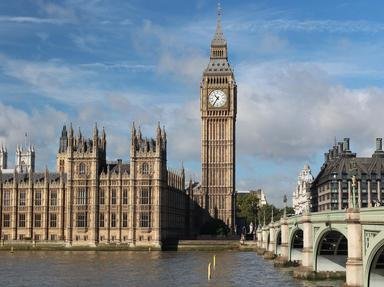
British Prime Ministers (1721-1955) Quiz
For this quiz, I am going to give you a list of British Prime Ministers. From the earliest can you put them in order according to when they held office?
An ordering quiz
by Kalibre.
Estimated time: 3 mins.

| What's the Correct Order? | Choices |
| 1. | Sir Robert Peel |
| 2. | William Ewart Gladstone |
| 3. | David Lloyd George |
| 4. | Lord Liverpool |
| 5. | Earl Grey |
| 6. | Robert Walpole |
| 7. | William Pitt the Younger |
| 8. | Stanley Baldwin |
| 9. | Benjamin Disraeli |
| 10. | Winston Churchill |